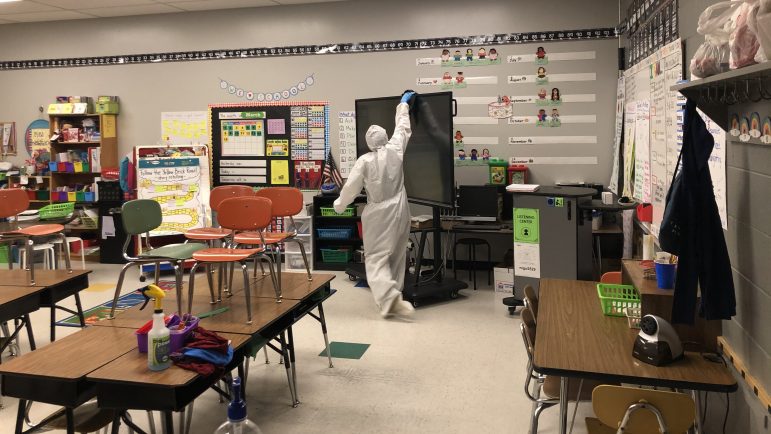Updated: 3/26/20 at 5:27 p.m.
Alabama K-12 students will not return to classrooms to finish out the 2019-2020 school year.
At a press conference Thursday, Gov. Kay Ivey said all public K-12 schools should establish a plan to complete the academic year using “alternative methods of instruction.” Ivey issued a supplemental state of emergency to allow for the transition, due to the spread of COVID-19.
“This decision has not been made lightly,” Ivey said. “I cannot stress to our viewers enough, we must be serious about eliminating the spread of this virus.”
The move comes as Alabama has more than 500 confirmed cases of COVID-19 statewide, with one confirmed death due to the virus. At Thursday’s press conference, State Health Officer Scott Harris said the Alabama Department of Health is investigating additional reported deaths and will update the count once they are confirmed. The state has created a dashboard to track the outbreak.
Ivey initially declared a state of emergency on March 13. At that time, she ordered all public K-12 schools to close for two and a half weeks, from March 19 through April 6.
State Superintendent Eric Mackey, who joined Ivey at the press conference, said the state will be as flexible as possible to help students finish out the school year remotely. Mackey said he plans to meet individually with local superintendents to develop plans for each school district and the state is extending the official end of the school year to June 5, to give schools more time to make up for learning loss.
To continue teaching, many teachers will rely on digital and online platforms, though access to broadband internet varies across the state. In areas with limited resources, Mackey said the state will help schools provide students with take-home packets with printed coursework. He says Alabama Public Television will broadcast courses throughout the day and students across the state can call a “homework hotline” managed by the Alabama library system.
In an interview earlier this week, Mackey said he’s concerned that students will fall behind academically without being able to return to a traditional academic setting this spring. At Thursday’s press conference, he said when schools start back in the fall, they will assess students and address any learning deficiencies.
“As much as we know teachers will be working very hard over the next eight weeks to catch students up and to get this year complete,” Mackey said, “we know that the time between when they [students] last saw a classroom teacher this year and when they’re going to see one in the fall is going to be greater than it’s normally been.”
Mackey said students will not have to repeat a grade due to the disruption, though some graduating seniors may have to return during the summer to complete necessary credentials for things like AP courses and welding certificates.
The school closure means spring extracurricular activities, like sports and band, are canceled. But Mackey said he hopes other activities, like graduation ceremonies and prom, can be postponed until a later date after the end of this school year.
Public health officials across the country have issued orders in recent weeks asking people to stay at home and limit social interaction. When asked by a journalist if she would issue a statewide shelter-in-place order, Ivey responded, “Y’all, we are not Louisiana. We are not New York state. We’re not California. And right now is not the time to order people to shelter in place.” Alabama’s largest city, Birmingham, instituted a shelter-in-place policy earlier this week.

